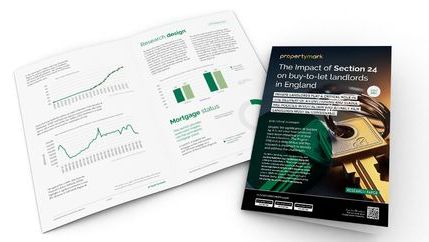
Reform of Stamp Duty Land Tax (SDLT)
We’re concerned about reports that Chancellor Rachel Reeves, MP, may lower the SDLT threshold for first-time buyers. To continue to support people onto the housing ladder the current threshold of £425,000 should remain, along with the 5% rate for properties up to £925,000.
We also propose additional measures targeted at over 55’s looking to ‘right-size’ as they approach or start retirement, which would create movement in the market and free up much needed family size accommodation, contributing to easing the housing crisis.
We recognise that SDLT is an important source of revenue for HM Treasury despite decreasing receipts , with £11.61 billion collected in 2023/24, compared with £15.36 billion pounds in 2022/23. However, by concentrating relief on purchases made by older people, HM Treasury could draw on revenue from increased purchases made by the working age population.
Reversing Section 24 of the Finance Act
Propertymark calls on the UK Government to treat landlords as small businesses and allow them to claim 100% of their mortgage interest when filing their tax returns.
The phasing out of Mortgage Interest Relief (MIR) and other tax-deductible costs, such as arrangement fees in 2016, has significantly increased landlord’s costs and disincentivised others from joining the market. According to data from CBRE, there has been an estimated net reduction of 400,000 rental properties from the PRS since 2016, with a strong correlation between the base rate increasing and the number of landlords exiting the market as their taxation payments increase.
Reducing supplies of PRS properties will lead to financial burdens on local authorities as they are required to house more households in temporary accommodation. London has seen the most dramatic effect, with the surge in homelessness and the increased reliance on B&B properties costing a staggering £90 million per month.
Support to meet Minimum Energy Efficiency Standards (MEES)
Propertymark wants realistic and achievable regulations that will help the UK towards more energy-efficient homes. Incentives and access to sustained funding for landlords and homeowners are the keys to making progress, and without them, it is unlikely that energy efficiency targets will be met.
We recommend that the UK Government considers a similar model to the one currently being considered by the Welsh Government with collaboration with the Development Bank of Wales. The proposed scheme will offer a free assessment to homeowners followed by an application process for funding for energy efficiency measures for their property. Successful applicants will be awarded either a grant or a 0% interest-free loan payable over ten years.
The scheme will complement other Warm Homes Funding which is specifically targeted at those on means-tested benefits or who are vulnerable to the cold. We are supportive of the Welsh Government’s scheme and believe that the UK Government should go further and be open to both homeowners and private landlords.






